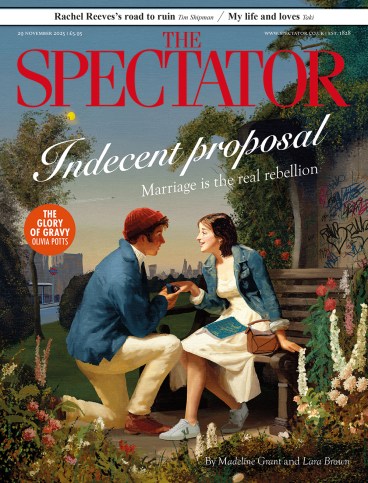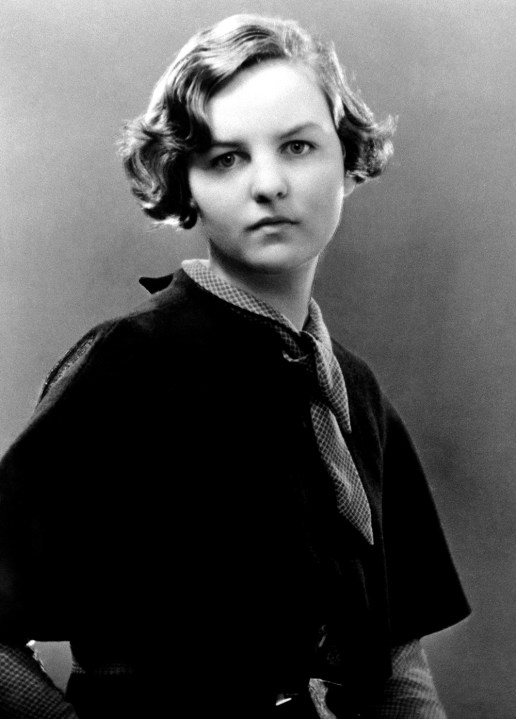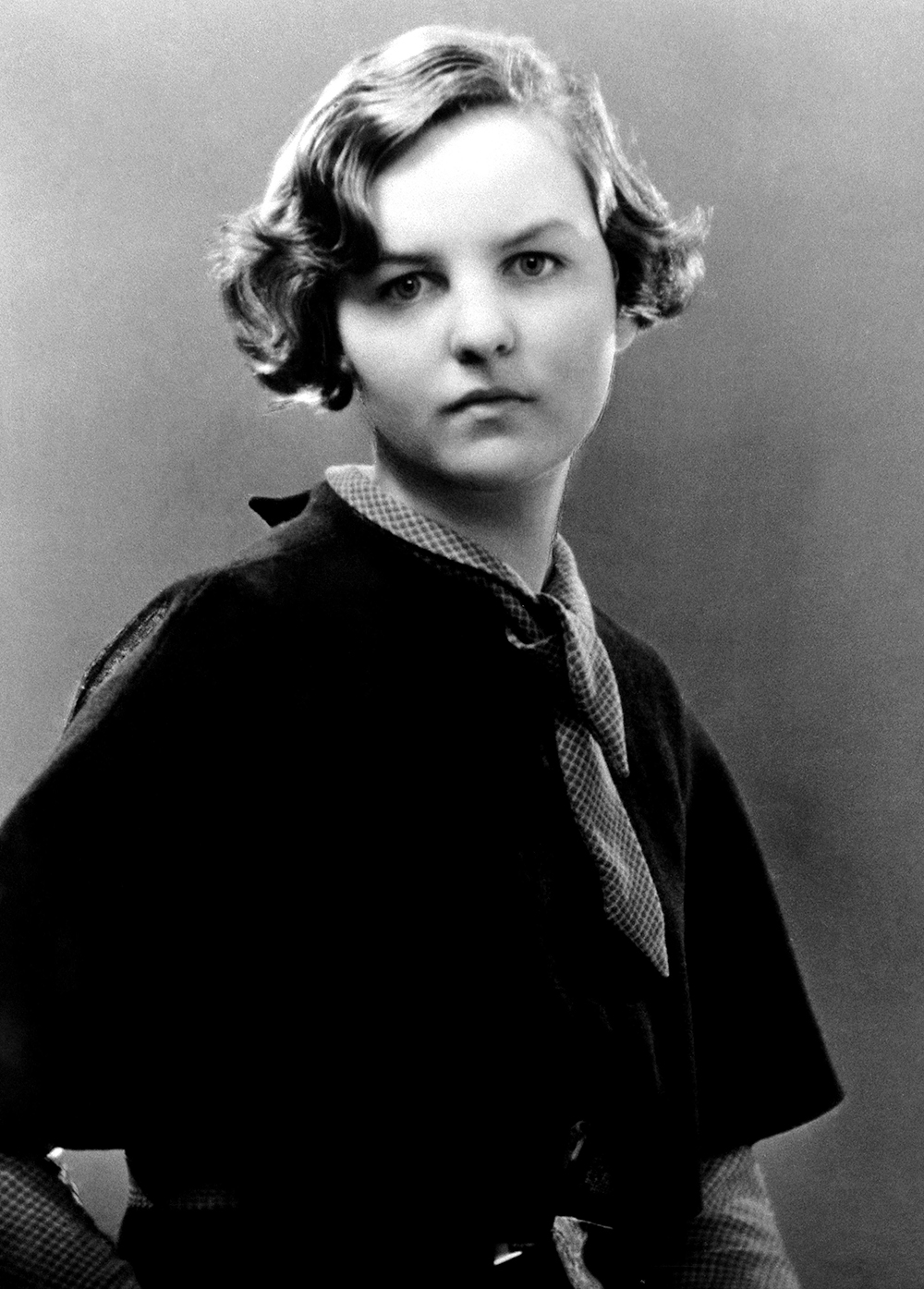
Can there really be any point in yet another fat book about one of the Mitford sisters? Their antics have been appearing in print since the late 1940s, when the eldest – clever, waspish Nancy – displayed their family eccentricities in her sparkling novel The Pursuit of Love. Since then, by a rough count, there have been 15 biographies, individual and joint, including three of both Nancy and Jessica, two vast compendiums of correspondence and five autobiographies by four of the sisters (Jessica wrote two). Have we not had enough of the unreconstructed paterfamilias Lord Redesdale (or Farv); of the Hons (airing) Cupboard, where the girls would take refuge at freezing Swinbrook, in Oxfordshire, to dream of love and escape; and of the nursery squabbles between Unity, drawn to Nazism, and Jessica, passionate about communism, leading to the former’s infatuation with Hitler and the latter’s near lifelong dedication to the party?
Evidently not. Last year, Outrageous, the latest in a series of television and film portrayals (there have also been plays and a musical) gave us a glamorised account of the sisters’ romantic and political escapades, featuring pretty actresses in slinky satin frocks, blonde bobs and red lipstick. They were described by Vanity Fair as ‘gorgeous, passionate and defiant… the Kardashians of the era’. Some found it ‘addictive’; to others, it was soap opera with added Nazis. This magazine found the accents not posh enough.
In the wake of all this, Carla Kaplan’s exhaustively researched and thorough account of Jessica (or Decca, as everyone knew her and Kaplan calls her throughout) comes as a welcome relief. The author is a distinguished American academic and cultural historian who has previously written about the important black writer Zora Neale Hurston and an excellent study of white women and the Harlem renaissance. She has read everything, including unpublished material, and interviewed everyone she could find. She has also had the backing of Decca’s children. Her credentials are evident and her intention clear: she sets out to establish once and for all that Decca’s life revolved around a determination to work for social justice in general and the abolition of racial prejudice in particular – or, as Kaplan puts it, to transform herself ‘from aristocrat to activist’. In fact, she managed to remain a unique combination of both.
Not surprisingly, Kaplan has a surer touch with the left-wing American political scene than with the eccentricities of upper-class British life. Her account of Decca’s childhood is familiar, but has to be retold; her birth family remained vitally important to her. Even though she could not wait to get away, there was never any question of falling out of touch or giving up the nicknames, jokes and private language the sisters and their mother shared. Contact was never broken; a torrent of letters never stopped. Kaplan makes excellent use of them; her own tendency to solemnity is lightened by Decca’s unfailing humour and capacity to see, and make, the jokes.
Escape from childhood came at first from within the tribe, when Decca found an instant soulmate in her cousin – and Winston Churchill’s ruthlessly subversive nephew – Esmond Romilly, with whom she ran away to support the Republicans in Spain in 1936, when she was 19. Uproar ensued, but there was no turning back: they married, had a baby daughter and went to live in working-class Rotherhithe, where Decca and Julia both caught measles. Decca survived; the baby did not. As Kaplan records, to some this seemed like retribution: ‘No one appreciated the price Decca had paid to change who she had been.’ Her circumstances were different, but, true to her class and upbringing, she met this blow, and cruel later ones, with silent stoicism. Some of her friends never knew she had lost a daughter.
True to her class and upbringing, Decca met life’s cruel blows with silent stoicism
From Esmond, Decca learned about serious political commitment, and the pair decided to support the communist cause. She also learned how to exploit connections and seize opportunities, to break rules and dodge penalties. All her life, she made her own rules.
Eager for a change of scene, alarmed by appeasement, shocked by her sisters Unity and Diana’s tendresse for Hitler and bemused by the Nazi-Soviet pact, Decca agreed with Esmond’s decision that they should try their luck in America. There they had a second daughter and met a well-connected and politically sympathetic couple dedicated to civil rights: Clifford and Virginia Durr took Decca and her baby under their wing when Esmond left for the Canadian Air Force on the outbreak of war (though they were not given much choice, as Kaplan shows). Virginia taught Decca a great deal about grassroots campaigning and organisation and became like another sister to her. (By this time Unity had tried to shoot herself and so was lost to Decca, and Diana had married Oswald Mosley.) According to Kaplan, Virginia also became Decca’s ‘first truly feminist role model’. This sounds like wishful thinking; feminism was not one of Decca’s causes. After Esmond was lost over the North Sea in 1941, Virginia could hardly believe Decca’s ‘concrete upper lip’, though she heard her weeping in the night.
In the wake of his death, Decca joined the Communist party. She moved to Washington to work in a government office, and it was there that she met her second soulmate and husband, Bob Treuhaft, a Hungarian Jew, a brilliant lawyer and also a party member. He always said he fell for her when he observed her stealing her lunch in the office canteen.
At the heart of Kaplan’s book is the story of how, with Bob, Decca settled in Oakland, near San Francisco, and built her life around their family – they had two sons together, one of whom was killed in a road accident – and the civil rights movement, in which the Communist party undoubtedly led the way. Decca ran the local branch of the Civil Rights Congress and worked tirelessly, speaking, leafleting, demonstrating, lobbying and travelling the country (including making a terrifying trip to Mississippi in the Deep South) to encourage the faithful and spread the word.
Her own account of these years, including her grilling by the House Un-American Activities Committee, is given in A Fine Old Conflict, published in 1977, and is easier reading, though surely less reliable, than Kaplan’s. What should not be missed is her publication in 1956 of a pamphlet entitled Lifeitselfmanship or How to Become a Precisely-Because Man: An Investigation into current L (or Left Wing) Usage (the title a take-off of Nancy’s invention of U and Non-U language), in which party jargon is brilliantly skewered. This was surprisingly successful and was to lead to her career as a writer and muckraker, always in collaboration with Bob, which peaked with their masterpiece exposing the funeral racket, The American Way of Death, published in 1964.
By the time she reached her sixties and had become something of a literary celebrity, she would make regular visits back to Britain, where she would see all her sisters except Diana, with whom the breach was total. On hearing that Diana had offered to entertain her son Benji on a trip to France, Decca’s response was that she would rather he was not made into a lampshade. But she would visit Debo, the Duchess of Devonshire, and the elegant Nancy in Paris – though one sad revelation in this book is of the malice with which the sisters reported on these encounters. In London, the comrades and other friends, of whom this reviewer was one, would be summoned to riotous parties with killer martinis and Bob’s special baked beans, at which it was hard to prevent Decca and Maya Angelou taking the floor to sing ‘Right Said Fred’ and ‘Maxwell’s Silver Hammer’.
To the end of her life, Decca had the daunting blue gaze, pure upper-class accent and ruthless, exploitative charm of a true Mitford. Kaplan’s account is solid, even-handed and, in the end, impressive. It confirms the fact that Decca was surely the only one of all the Mitfords worth taking seriously.








Comments